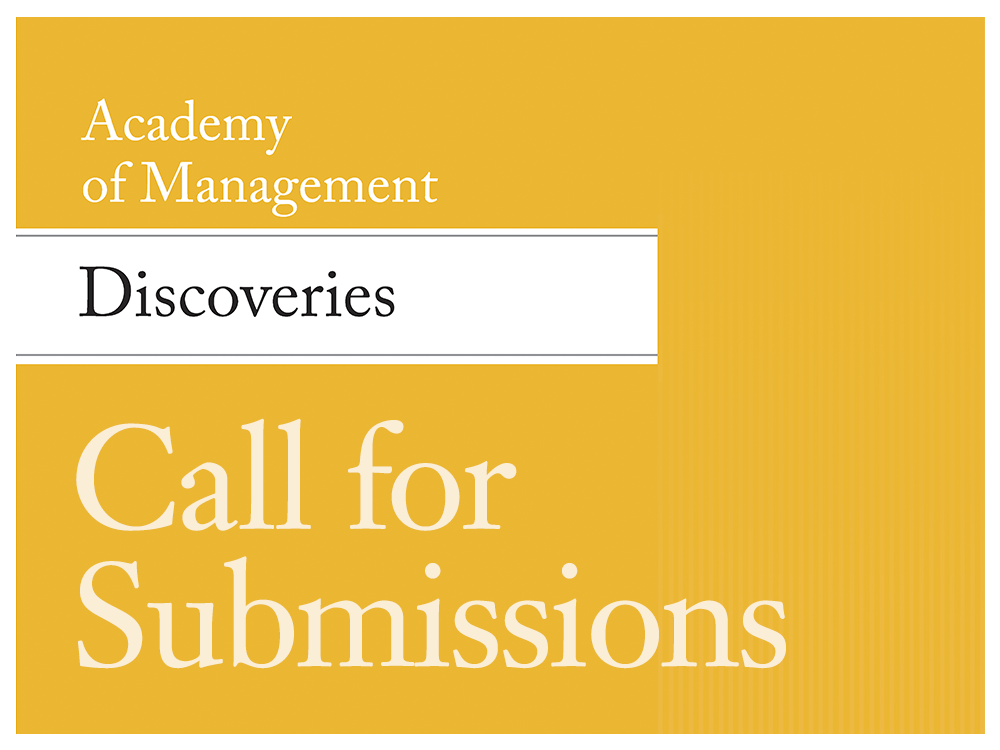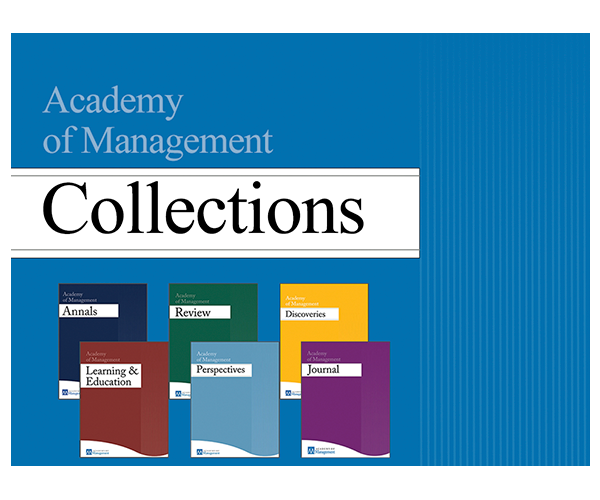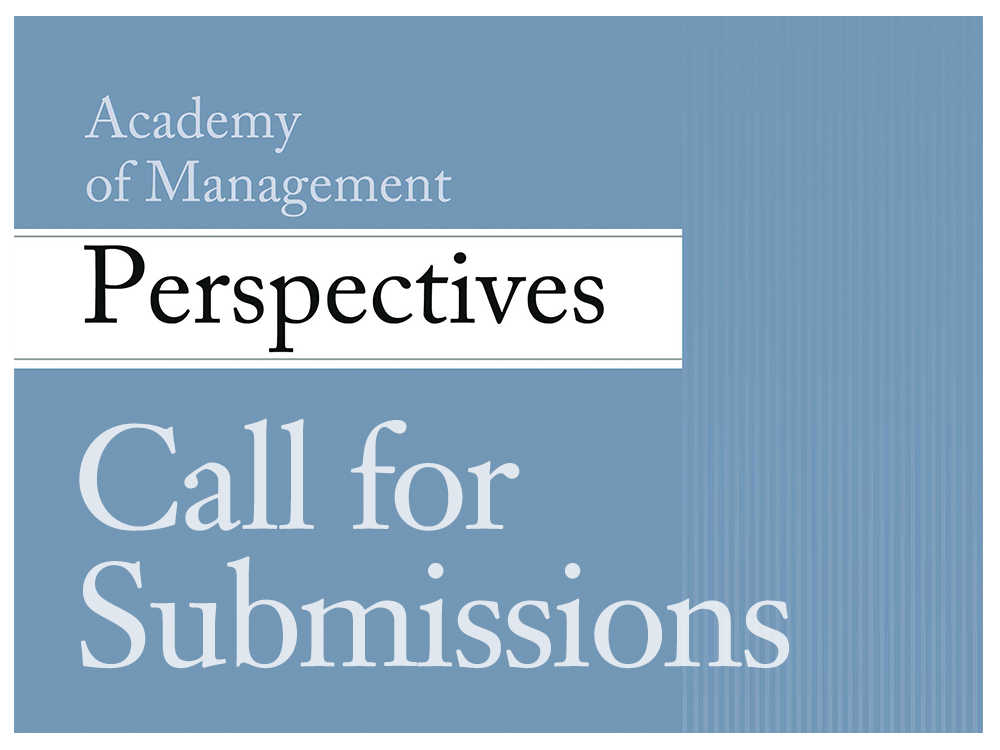Big Data and Managing in a Digital Economy
Taking place 18-20 April 2018, at Surrey, United Kingdom, this conference was hosted by the University of Surrey, in collaboration with the following Divisions and Interest Groups of the Academy of Management: Human Resources (HR), Management Consulting (MC), Organizational Behavior (OB), Organizational Communication & Information Systems (OCIS), Organization & Management Theory (OMT), Organizations & the Natural Environment (ONE), Social Issues in Management (SIM), Strategic Management (STR), Technology & Innovation Management (TIM).
6 videos related to this conference, including keynotes, are available.
Conference Theme
Big Data and Managing in a Digital Economy In an increasingly digital economy, opportunities dazzle, threats loom large, and management challenges abound. Pervasively connected and powered by digital technologies, to which extent will modern organizations require or invent new forms of management? Big Data, digital businesses, platforms, innovation ecosystems, but also algorithmic organization, network effects, winner-take-all: far from being simply a purely technological phenomenon, digitization affects individuals, organizations, industries, markets, and regions. It alters individual and team behaviors, practices, organizational processes, industry dynamics, and impacts outcomes at several levels of analysis. The digital phenomenon is multifaceted and affects how we work and how we organize. It changes the way organizations compete and innovate. It threatens long-lasting business models, and opens up new ways of creating and capturing value. As such, it is not only clearly relevant for management practitioners, but also centrally important for management scholars. The Conference program is articulated around six track themes, which have been co-developed by AOM Divisions & Interest Groups. Each theme and topic is meant to be of interest and relevance to more than one Division, in line with the cross-disciplinary ethos of the Conference. This three-day conference will be a mix of exciting and collaborative sessions including symposia, paper sessions, keynote speakers, interactive roundtable sessions, hands-on active learning workshops and more.
Conference Tracks
TRACK 1: The Digital Organization and Digital Organizing In the age of big data and algorithmic management, the nature of organizing is changing. What is a digital organization? How do algorithms and big data affect organizing? How
does digitalization affect leadership and management in organizations? How do the roles and responsibilities of humans and machines evolve in the digital organization? How do organizations transition to becoming digital? What are the challenges associated
with these transitions, and what potential issues do they create? How do digital organizations compete? How do you consult in the digital organization? How do researchers and practitioners develop and share knowledge about digital organizing?
TRACK 2: Platforms, Ecosystems, Computational Social Science, and Big Data How do digital platform strategies impact the direction and the intensity of industry innovation? How do platform strategies affect competitive outcomes? How do multi-sided markets and network effects affect competition and innovation? How do innovation and competition interact in platform-based ecosystems? How do digital ecosystems differ from traditional supply-chains, or other networks of organizations? Are platform companies gathering too much power? How is this power exercised? To which extent might platform regulation solve competition issues, or, conversely, create different issues? Other welcome topics include crowdsourcing, crowdfunding and design of the platform architecture (and not just technical design but also design of information and Big Data shared with platform participants), computational social science that deal with Big Data and individuals in crowds and communities, AI and decision making in collective environments, the role of Big Data visualization and decision making.
TRACK 3: The Future of Managing People, Work, and Well-Being in the Digital Economy This track theme is broadly focused on the implications of digitalization/Big Data on the nature, design, and future of managing people in organizations, work, careers, organizational and individual well-being, and employment relations. How is the digital economy shaping the way people work and organize (distance work, gig work, virtual teams, etc.), including the influence of information technology on how work, jobs and careers are designed and organized? What are the outcomes for individual well-being, diversity and inclusion, health, and work-life balance in the digital economy? What competencies are required by different employee groups to handle digitalization and Big Data? What are the influences, consequences, or contingencies of eHRM, digital HRM and HR Analytics on organizations, human capital, and employee attitudes and wellbeing? From the Big Data perspective, to what extent and how is Big Data being used in the management of people in organizations? What factors are associated with the decision to deploy Big Data in the management of people? What are the outcomes of the use of Big Data in the management of people in organizations? What are the ethical issues related to the use of Big Data in the employment relationship, and how are researchers and practitioners addressing those issues?
TRACK 4: Data Governance and Data Markets With nonexistent intellectual property rights and the legal and regulatory frameworks in flux, data commercialization is currently governed contractually and via organizational arrangements. As with other digital commodities, data business models tend to be complex and non-obvious. How can new or evolving business models facilitate data commercialization? When is data licensing feasible and when does data need to be embedded in other digital services? How do firms compete with data, i.e. can data provide differentiation in complex digital service arrangements? Will advances in computer science scale and enable open data markets or is data governance in the Internet of Things confined to limited data pools or data-sharing consortia? How will such pools or consortia be structured to enable networked data?
TRACK 5: Culture and Big Data in Digital Humanities Increasingly, Humanities are using big data to understand narratives and plots, asking questions such as what makes a work successful. Digital Humanities use such methods as
algorithmic analysis of text / videos, advanced visualization techniques, 3-D mapping of texts, and digitization of non-English and non-Latin-alphabet sources. This track welcomes contributions at the intersection of big data and humanities as
well as the use of Digital Humanities tools to analyze business and management content, communications, and behavior. It tackles such questions as: What new insights can be gained from corporate discourse analysis? How do companies’ behaviors
as manifested in a broader range of communications differ from official press / financial disclosure releases? What new insights can be gained from better visualization of, for example, board interlocks, strategic alliances, or patent co-citations?
TRACK 6: Governing the Corporation in the Age of Big Data Big data can connect firms more closely with all stakeholders, but how can companies use it? A digital platform can facilitate shareholders and other stakeholders communicating with directors and the firm—but do directors and the firm want this? Does this present an improvement in governance? In transparency? Will this increase social movements’ influence on the corporation? Will this allow stakeholders to coordinate action with respect to the corporation more easily and successfully? To the extent that big data increases transparency and communication, there can be benefits. There can also be a dark side. Some firms and stakeholders are already exploring this area. What can we learn from them?
400 attendees came together from 34 different countries for 3 days of presentations, active learning workshops, and panel discussions that provided key learning and networking opportunities.
View the Conference Program here.
Organizers
Conference Co-Chairs
- Annabelle Gawer, University of Surrey
- Christopher L. Tucci, Ecole Polytechnique Fédérale de Lausanne (EPFL)
Track Chairs
- Sabine Brunswicker, Purdue University
- Sandra Fisher, Clarkson University
- Søren H. Jensen, Copenhagen Business School
- Candace Jones, University of Edinburgh
- Aija Leiponen, Cornell University
- Janet Marler, University at Albany SUNY
- Karen A. Schnatterly, University of Missouri
Steering Committee
- David G. Allen, Texas Christian University, Warwick University (HR Division)
- Candace Jones, University of Edinburgh (OMT Division)
- Alberto Aragon-Correa, University of Granada (ONE Division)
- Aija Leiponen, Cornell University (TIM Division)
- Michael Barnett, Rutgers Business School (SIM Division)
- Deepak Somaya, University of Illinois at Urbana-Champaign (STR Division)
- Alexandra Gerbasi, University of Exeter (OB Division)
- Mary Beth Watson-Manheim, University of Illinois at Chicago (OCIS Division)
- Søren H. Jensen, Copenhagen Business School (MC Division)
- Active Learning Workshops Chair: Alexandra Gerbasi, University of Exeter
Doctoral Consortium Chairs
- Tanya Bondarouk, University of Twente
- Margaret White, Oklahoma State University
Sponsors, Contributors, and Supporters
Host Sponsor: Surrey Business School
University of Surrey, a top ten university, is one of the UK’s top professional, scientific and technological universities. Named as The Times and Sunday Times University of the Year 2016, Surrey has a world-class profile and a leading reputation in teaching and research. Collaboration and Research Excellence Surrey is a world-class, research-led university, committed to research excellence. Through collaboration with the wider university and our worldwide partners, Surrey addresses key global challenges. Surrey Business School accelerates innovative thinking into practice, investing in pioneering world-class research to deliver business-ready solutions that offer an immediate and lasting impact in the world. There are plenty of opportunities for collaboration and shared learning across the university, with Surrey being home to:
The 5G Innovation Centre
The largest UK academic research centre dedicated to the development of the next generation of mobile and wireless communications.
Surrey Research Park
Supporting innovative business ideas as a major centre of excellence in technology, science, health and engineering.
Surrey Incubation
One of the most successful Science Parks in Europe. As a Founding Member of the SETsquared Partnership, they support high-growth technology businesses.
VHive Partnership
Spearheading Surrey Business School’s digital innovation is the Centre for the Digital Economy (CoDE).
The Centre is at the forefront of measuring the effects and implications of digital innovation across multiple industries and disciplines. Partnering with Zoetis, one of the world’s leading animal health companies, and the University’s School of Veterinary Medicine and 5G Innovation Centre (5GIC), CoDE have launched VHive, a centre for digital innovation to advance e-Animal Health initiatives.
Business Insights Lab
Surrey Business School has cultivated a unique space enabling fast-paced business engagement and interdisciplinary collaboration. The Lab conducts experiments on the latest digital business models and ideas, using agile innovation methodology to bridge knowledge gaps as businesses create, refine and implement their strategies.
Diamond Contributor
Google Cloud Platform
Google Cloud Platform enables developers to build, test, and deploy applications on Google’s highly scalable and reliable infrastructure. Google Cloud Platform frees you from the overhead of managing infrastructure, provisioning servers and configuring networks. To let innovators innovate and let coders just code. Learn more about Google Cloud Platform at https://cloud.google.com.
Emerald Contributor
Tableau
Data is everywhere. But it can be hard to make sense of it all. Tableau helps people transform data into actionable insights that make an impact. Easily connect to data stored anywhere, in any format. Quickly perform ad hoc analyses that reveal hidden opportunities. Drag and drop to create interactive dashboards with advanced visual analytics. Then share across your organization and empower teammates to explore their perspective on data. From global enterprises to early-stage startups and small businesses, people everywhere use Tableau’s analytics platform to see and understand their data.
Sapphire Contributors
RAE-Revista de Administração de Empresas (Journal of Business Management)
RAE-Revista de Administração de Empresas (Journal of Business Management) was launched in 1961 and is considered one of the pioneering journals in the field of administration in Brazil. Published by FGV´s Sao Paulo School of Business Administration (EAESP) it is a peer-reviewed journal, and its articles represent the best in scientific rigor and relevance. RAE is a member of the Committee on Publication Ethics (COPE). The IF of RAE’s Journal Citation Reports (JCR) is 0.408, the highest in the field of administration in Brazil. RAE is open access and features in the world’s most relevant indexes, including Journal Citation Reports (JCR), Scopus, Scientific Electronic Library Online (SciELO), Directory of Open Access Journals (DOAJ), EBSCO, ProQuest, Gale Cengage Learning, Redalyc, Cabell’s, Latindex, among others.
The MIT Press
The MIT Press is a leading publisher of distinguished scholarly books in partnership with remarkable authors who are drawn from throughout the global academic community. The Press is recognized for its support of emerging fields and its global reach. Business books at the MIT Press focus on the digital economy, exploring the changes and challenges of new technology for companies and consumers alike. New Series from MIT Press/MIT Sloan Management Review: The Digital Future of Management Series Books in this new series draw from the print and web pages of the MIT Sloan Management Review to deliver essential reading for executives from the world’s leading source of ideas on how technology is transforming the practice of management.
Upcoming Events
Call for Submissions: AMD Discoveries-through-Prose

Call for Submissions: Collections

Call for Submissions: AMD Registered Reports

AMP Call for Special Issue Papers: Managing Under Political Turbulence
